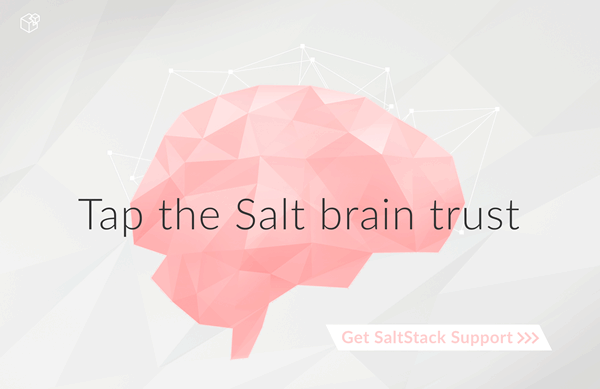salt.modules.boto_route53¶
Connection module for Amazon Route53
New in version 2014.7.0.
| configuration: | This module accepts explicit route53 credentials but can also utilize IAM roles assigned to the instance trough Instance Profiles. Dynamic credentials are then automatically obtained from AWS API and no further configuration is necessary. More Information available at: http://docs.aws.amazon.com/AWSEC2/latest/UserGuide/iam-roles-for-amazon-ec2.html
If IAM roles are not used you need to specify them either in a pillar or in the minion's config file: route53.keyid: GKTADJGHEIQSXMKKRBJ08H
route53.key: askdjghsdfjkghWupUjasdflkdfklgjsdfjajkghs
A region may also be specified in the configuration: route53.region: us-east-1
If a region is not specified, the default is 'universal', which is what the boto_route53 library expects, rather than None. It's also possible to specify key, keyid and region via a profile, either as a passed in dict, or as a string to pull from pillars or minion config: myprofile:
keyid: GKTADJGHEIQSXMKKRBJ08H
key: askdjghsdfjkghWupUjasdflkdfklgjsdfjajkghs
region: us-east-1
|
|---|---|
| depends: | boto |
-
salt.modules.boto_route53.add_record(name, value, zone, record_type, identifier=None, ttl=None, region=None, key=None, keyid=None, profile=None, wait_for_sync=True, split_dns=False, private_zone=False)¶ Add a record to a zone.
CLI example:
salt myminion boto_route53.add_record test.example.org 1.1.1.1 example.org A
-
salt.modules.boto_route53.create_zone(zone, private=False, vpc_id=None, vpc_region=None, region=None, key=None, keyid=None, profile=None)¶ Create a Route53 hosted zone.
New in version 2015.8.0.
- zone
- DNZ zone to create
- private
- True/False if the zone will be a private zone
- vpc_id
- VPC ID to associate the zone to (required if private is True)
- vpc_region
- VPC Region (required if private is True)
- region
- region endpoint to connect to
- key
- AWS key
- keyid
- AWS keyid
- profile
- AWS pillar profile
CLI Example:
salt myminion boto_route53.create_zone example.org
-
salt.modules.boto_route53.delete_record(name, zone, record_type, identifier=None, all_records=False, region=None, key=None, keyid=None, profile=None, wait_for_sync=True, split_dns=False, private_zone=False)¶ Modify a record in a zone.
CLI example:
salt myminion boto_route53.delete_record test.example.org example.org A
-
salt.modules.boto_route53.delete_zone(zone, region=None, key=None, keyid=None, profile=None)¶ Delete a Route53 hosted zone.
New in version 2015.8.0.
CLI Example:
salt myminion boto_route53.delete_zone example.org
-
salt.modules.boto_route53.get_record(name, zone, record_type, fetch_all=False, region=None, key=None, keyid=None, profile=None, split_dns=False, private_zone=False)¶ Get a record from a zone.
CLI example:
salt myminion boto_route53.get_record test.example.org example.org A
-
salt.modules.boto_route53.update_record(name, value, zone, record_type, identifier=None, ttl=None, region=None, key=None, keyid=None, profile=None, wait_for_sync=True, split_dns=False, private_zone=False)¶ Modify a record in a zone.
CLI example:
salt myminion boto_route53.modify_record test.example.org 1.1.1.1 example.org A
-
salt.modules.boto_route53.zone_exists(zone, region=None, key=None, keyid=None, profile=None)¶ Check for the existence of a Route53 hosted zone.
New in version 2015.8.0.
CLI Example:
salt myminion boto_route53.zone_exists example.org


